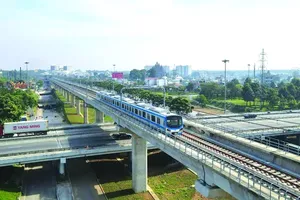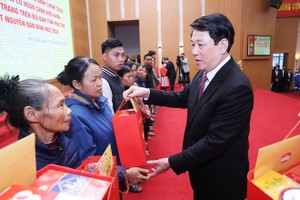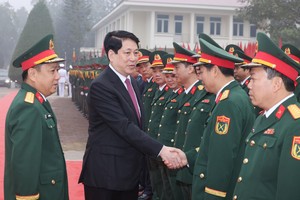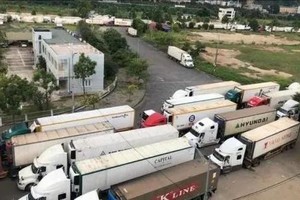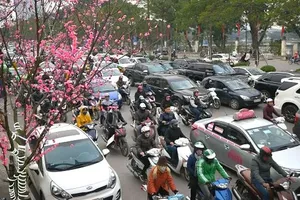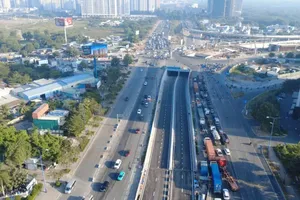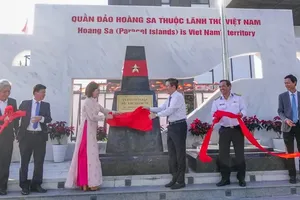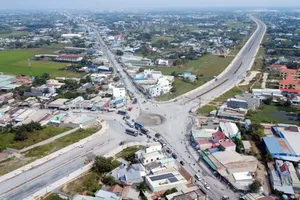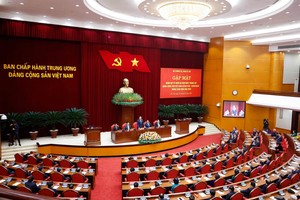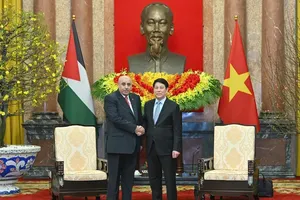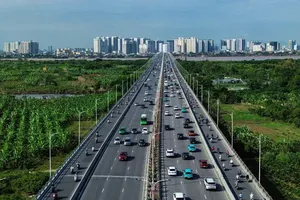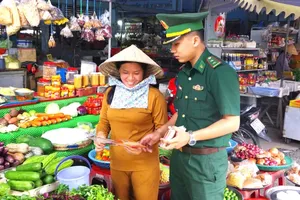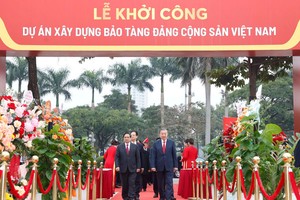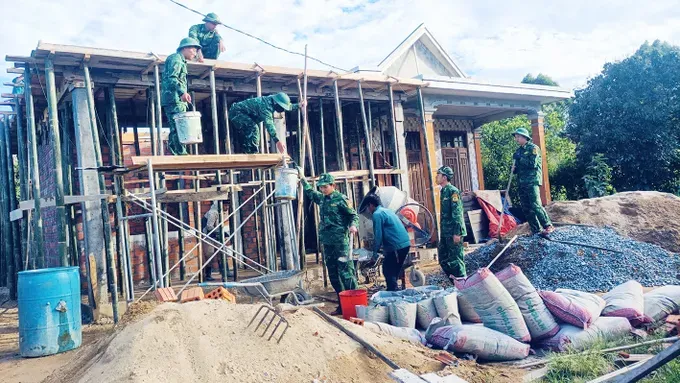
“Great construction site” on S-shaped land
For months now, a familiar sight has unfolded across Can Tho City. Soldiers, police officers, veterans, women, and youth union members, trowels and shovels in hand, are working tirelessly to build and repair homes. One by one, sturdy new houses are completed, bringing waves of joy and hope to thousands of families.
Standing in her new home, the fresh scent of paint still in the air, Tran Thi Sal shared her feelings. “It’s not the smell of new paint; honestly, I’m just too overjoyed to sleep”, she said, her voice thick with emotion. “For so long, just putting food on the table was a struggle. I never dared to dream of a new house. It’s all thanks to the care of the State and our local authorities.”
Can Tho City identified a need to support 11,462 households, requiring a budget of over VND570 billion (US$22.8 million). In just over six months, an incredible 58,000 days of labor were contributed by the armed forces and members of various socio-political organizations. Beyond their sweat and effort, these groups also mobilized nearly VND20 billion ($800,000) worth of construction materials – every brick and bag of cement a testament to a community building homes filled with human compassion.
In the nation’s southernmost province of Ca Mau, the housing program is both a social safety net and a powerful engine for poverty reduction. The province has creatively mobilized resources beyond government budgets, calling on public officials to donate at least one day’s salary. Meanwhile, citizens, police, military personnel, and youth groups have all pitched in with the spirit of “contribute what you can”.
Going beyond the standard support of VND60 million ($2,400) for a new build and VND30 million ($1,200) for repairs, the province even adds an extra VND5 million ($200) from social funds for each family to build a standard toilet.
A jubilant atmosphere of a community can be seen in Lac Duong Commune of Lam Dong Province where its last temporary houses are replaced. This vast commune, where over 80 percent of the population is of the K’Ho ethnic group, is home to Lieng Jrang Ha Bai. He proudly revealed his new home, still smelling of fresh paint.
His family of five used to live in a wooden house from 2012. “It was hot in the dry season and leaked constantly during the rains”, he recalled. A proper home felt like an impossible dream. But thanks to VND67.5 million ($2,700) in state support and a VND50 million ($2,000) loan from the policy bank, that dream is now his reality.
In Dak Lak Province, a program led by the provincial Department of Public Security is replacing rickety shacks with sturdy new homes for 43 disadvantaged households. A local resident, H’Ngat, was overcome with emotion upon receiving her new house. Despite challenges like prolonged rain and rising material costs, officials confirmed their commitment to completing the project on schedule for the community.
These days, the family of Y Chuc in the border commune of Bo Y in Quang Ngai Province, is living in complete happiness. A smile is ever-present on the simple woman’s face. After years of hardship, they finally have a solid, spacious home in this remote border region, a dream she never thought possible until Company 732 of Army Corps 15 stepped in to help build it.
In Da Nang City, Phan Van Da, a Co Tu man, used to live in a rickety shack with his sick wife and two children on a precarious income. He initially hesitated at the VND30 million ($1,200) support offered, as it wasn’t nearly enough to build a new home. However, after he explained his dire situation, officials increased the support to VND80 million ($3,200). Taking a gamble, he added a VND100 million loan, admitting, “If we didn’t do it, we’d be in a tattered house forever.”
In Hue City’s A Luoi border region, soldiers from the Border Guard are the primary builders in the housing drive. They rushed to finish a roof for a grateful local, Ho Van Hinh, who said he no longer fears the storms. A political commissar shared how the soldiers learn on the job. One young private initially struggled with plastering, but quickly mastered it. “He’s a soldier, after all”, the commissar recounted. “No matter how hard it is, they learn and get it done.”
Right policy, effective action
The campaign of eliminating dilapidated housing is more than a collection of heartwarming stories; it’s a powerful demonstration of proactive thinking and effective policy implementation from the national to the local level. Creative models and decisive, flexible execution have generated widespread impact and tangible results across the country’s most challenging regions.
In the provinces of Quang Ngai, Gia Lai, and Dak Lak, the program reached nearly 39,000 poor and policy-beneficiary households, with each locality finding innovative ways to mobilize all of society’s resources.
The former province of Binh Dinh (now Gia Lai) offers a stunning example of success, completing 4,411 houses in just 136 days. Its approach was defined by “real promise, real action, real results, and real beneficiaries”. When central government funds were delayed, the province boldly advanced its own budget, a daring spirit of innovation and accountability that bolstered public trust and inspired confidence.
Similarly, Hue City overcame significant financial and weather-related hurdles to finish its goals a month ahead of schedule, a remarkable feat given that official support often covers only about half the actual construction costs.
Across the nation, from the deltas to the highlands, these new homes are more than just shelter. They are powerful symbols of the connection, trust, and shared responsibility between the government and its people. This national campaign is changing the face of rural Vietnam by rekindling hope and empowering citizens to build better, more stable lives.
Colonel Nguyen Xuan Son of the Gia Lai Province Military Command recalls the immense effort required to help the Ba Na ethnic community. His unit set up a forward command post in the remote mountains, contributing over 2,000 workdays and hauling 1,000 tonnes of materials across 20,000 kilometers of treacherous roads.
“When the houses, built in the traditional Ba Na architectural style, were standing strong, our men were overjoyed”, he said. “As we were leaving, the villagers came out in large numbers, pressing gifts of forest vegetables, chickens, and sticky rice into our hands.”


